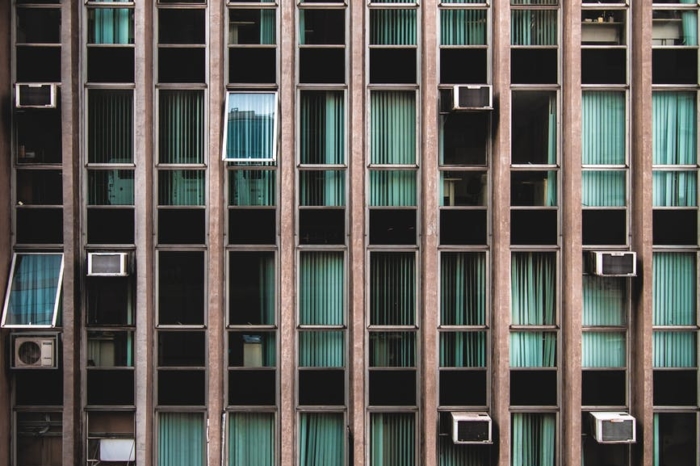HVAC Systems’ Influence on the Spread of Covid-19
HVAC systems provide heating, ventilation, and air conditioning to millions of buildings, however in the age of the Covid-19 pandemic, these systems also pose a serious health risk. Many HVAC systems lack proper air exchange, instead recycling old air. Consequently, if infected droplets enter the system, the virus circulates throughout the area, potentially widening its spread and infecting more individuals. This is an issue considering HVAC systems are used widely across Massachusetts and the entirety of the United States in both large and small establishments.
The Center for Disease Control (CDC) and World Health Organization (WHO) state that the virus is mainly transmitted through droplets or occasionally when an individual comes in contact with an infected surface and then touches his or her face. Hundreds of scientists additionally believe that the virus is airborne, which would further facilitate the spread of the virus through HVAC systems. Data showing how the northern US was more greatly affected in the colder months (when everyone was inside) and how southern states have had more cases in the hotter, summer months (when people tend to escape to the cool air conditioning) may back up this possibility. The WHO has recently shared that Covid-19 may potentially be airborne, especially considering several other types of coronavirus can be transmitted through aerosols.
While creating a new ventilation system fully protected against Covid-19 risk may not be a viable option either financially and practically, there are several ways to make current HVAC systems safer. While the limited capacity regulations in establishments instituted in Massachusetts to limit outbreaks of coronavirus may help to reduce airborne transmission of the virus to some extent, solutions ranging from opening windows to new studies regarding UV light and its sanitation benefits may be equally important.
Air exchange systems, both natural and mechanical, reduce the risk of transmission within closed spaces as they prevent the “recycling” of the old, possibly infected air. Some studies show that ventilation can produce the same effects as vaccinating 50-60% of individuals exposed to some illnesses, like influenza. Natural ventilation occurs through several intentional openings, leaks, or open windows, although they may not be as effective as the alternative. Mechanical ventilation, on the other hand, may be supplied through the HVAC system through exhaust fans and/or dedicated ventilation systems.
Filtration systems serve a similar purpose, although many are unable to block the small Covid-19 particles. Most commercial establishments have MERV (Minimum Efficiency Reporting Value) filters rated 12 or lower, which block particles larger than 1.0 microns. Unfortunately, Covid-19 is only 0.1 microns on average, making these filters essentially useless against the disease. Filters with MERV ratings 17+ are much more competent in protecting against Covid-19, trapping particulate matter smaller than 0.3 microns. However, this filtration still does not offer full protection against the virus as particles range in size from 0.14 to 0.06 microns.
A new study from Irving Medical Center at Columbia University suggests that a certain wavelength of UVC light may also be used to safely fight the virus in indoor spaces. While UVC light has been known to effectively kill microorganisms for years now, being multiple times more powerful than UVA and UVB light, it often poses dangerous side effects to humans, such as skin cancer and blindness. While this threat has not discouraged everyone from using its sterilization benefits, safer options are being discovered. Researchers at the Irving Medical Center discovered that UVC light with a wavelength of 222 nanometers, as opposed to the standard 254 wavelength UVC light, still efficiently sanitizes the air, but without creating a health hazard to exposed humans. The study shows that within 25 minutes, 99.9% of the airborne coronaviruses tested, alpha HCoV-229E and beta HCoV-OC43, were killed. Although UVC light has not yet been tested on Covid-19, the similarities among the viruses lead scientists to believe that this strategy may effectively reduce the risk of Covid-19 in closed spaces.
These solutions are relevant to businesses across all industries in Massachusetts and around the globe. The issue of “recycled air” in HVAC systems affects not only larger establishments like malls and large concert and sport venues, but also small buildings. Restaurants, office buildings, and even transportation systems, like airplanes and the MBTA, have installed HVAC systems which have the potential to infect clients as well as employees. Especially in sectors like the restaurant industry, where customers are generally unmasked, an unsanitized HVAC system can pose a great threat.
State government and private research should further investigate the true risk of Covid-19 spreading through HVAC systems present in many buildings and modes of public transportation. While safe UVC technology is still mainly limited to laboratories, air exchange and filtration systems are a practical option for many establishments. Depending on the age and size of the building, the ability to install these systems may vary, considering large buildings like malls may already have some sanitizing methods in place that may be easier to update than implementing a new system in an old Bostonian office building. As we look towards Massachusetts’ Phase 4 of reopening, the “new normal” phase may be reliant on certain technology to be implemented or an effective vaccine for Covid-19. Employees in different industries may be affected differently as well, depending on ventilation/filtration systems and a business’s financial ability (and willingness to) implement such precautions. If “air-recycling” is a serious issue, these systems should be installed across Massachusetts, especially in service buildings, in order to make in-person work a viable option. Without them or a vaccine, it may not be safe to return to our old daily routines.
Darley Boit is a 2020 Roger Perry Summer Intern



